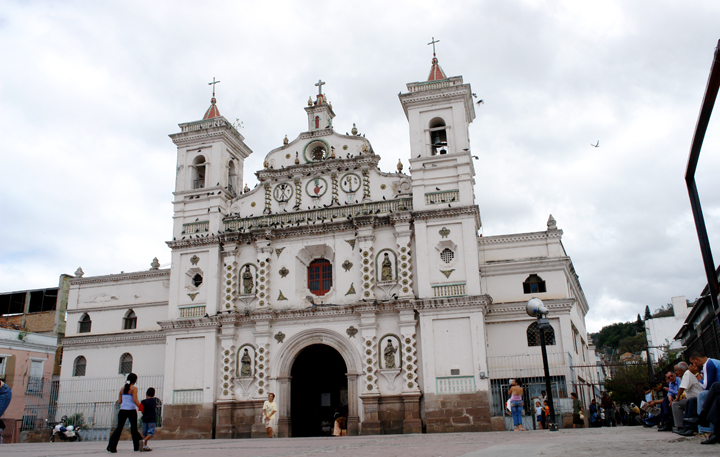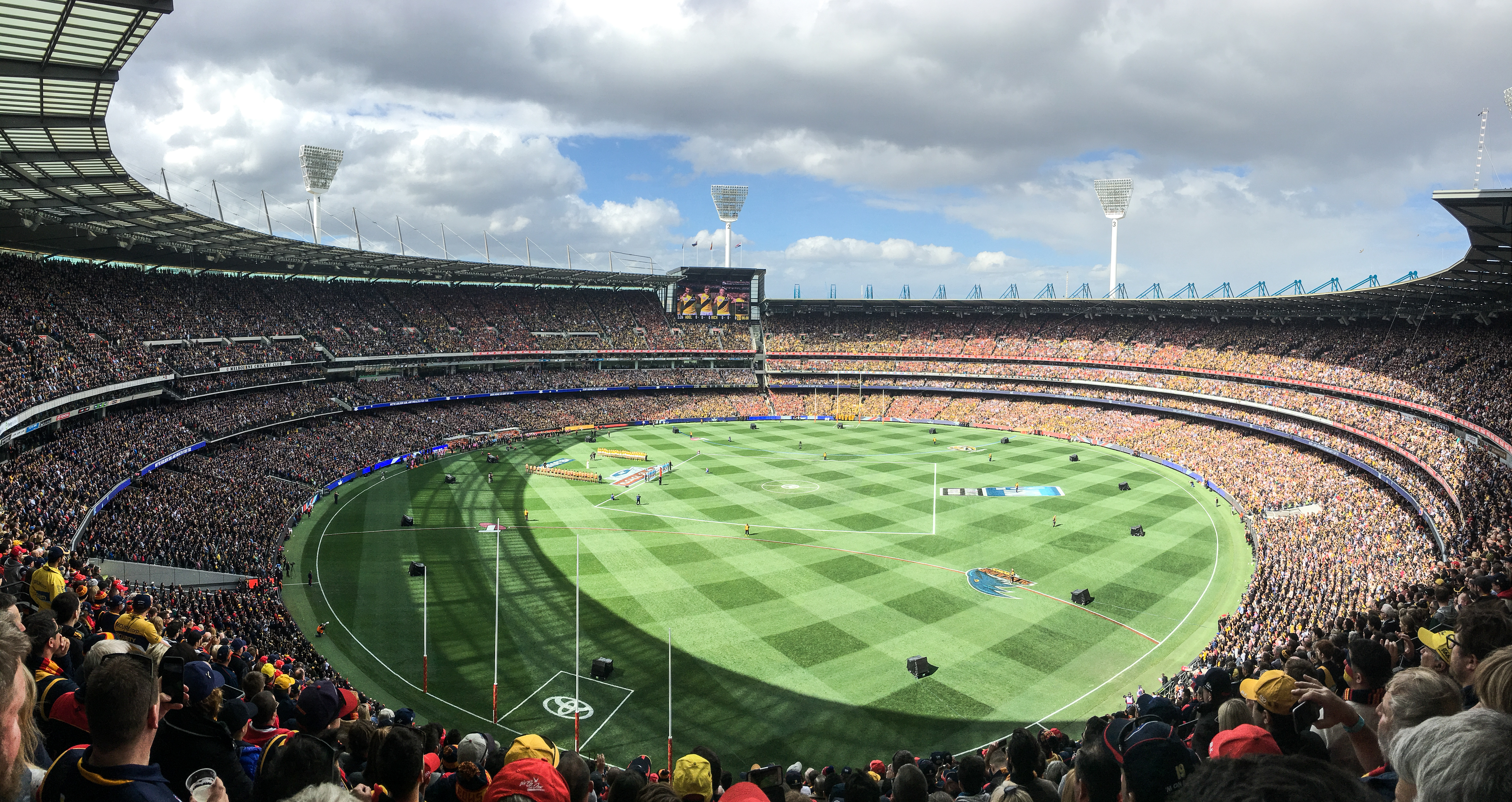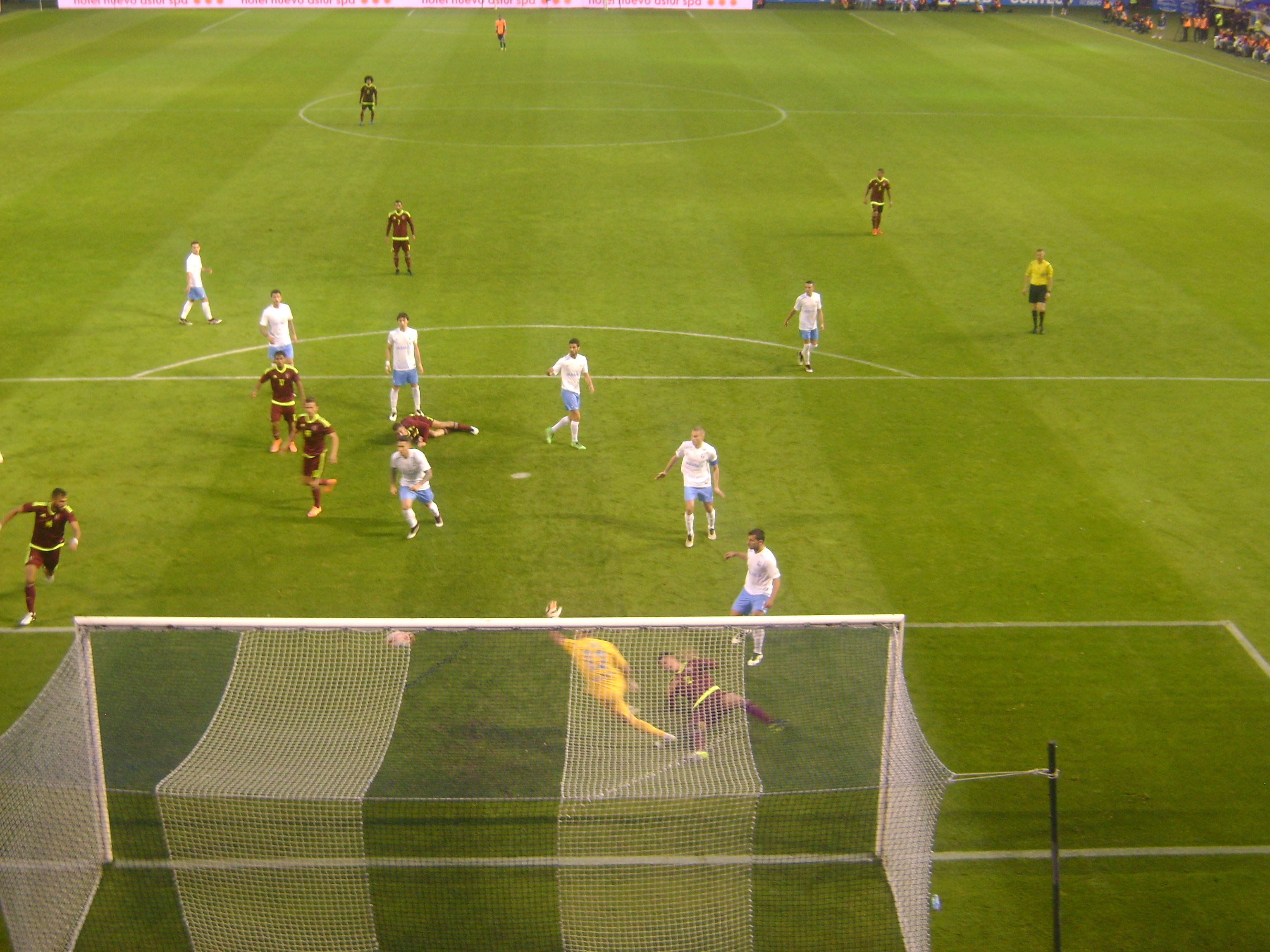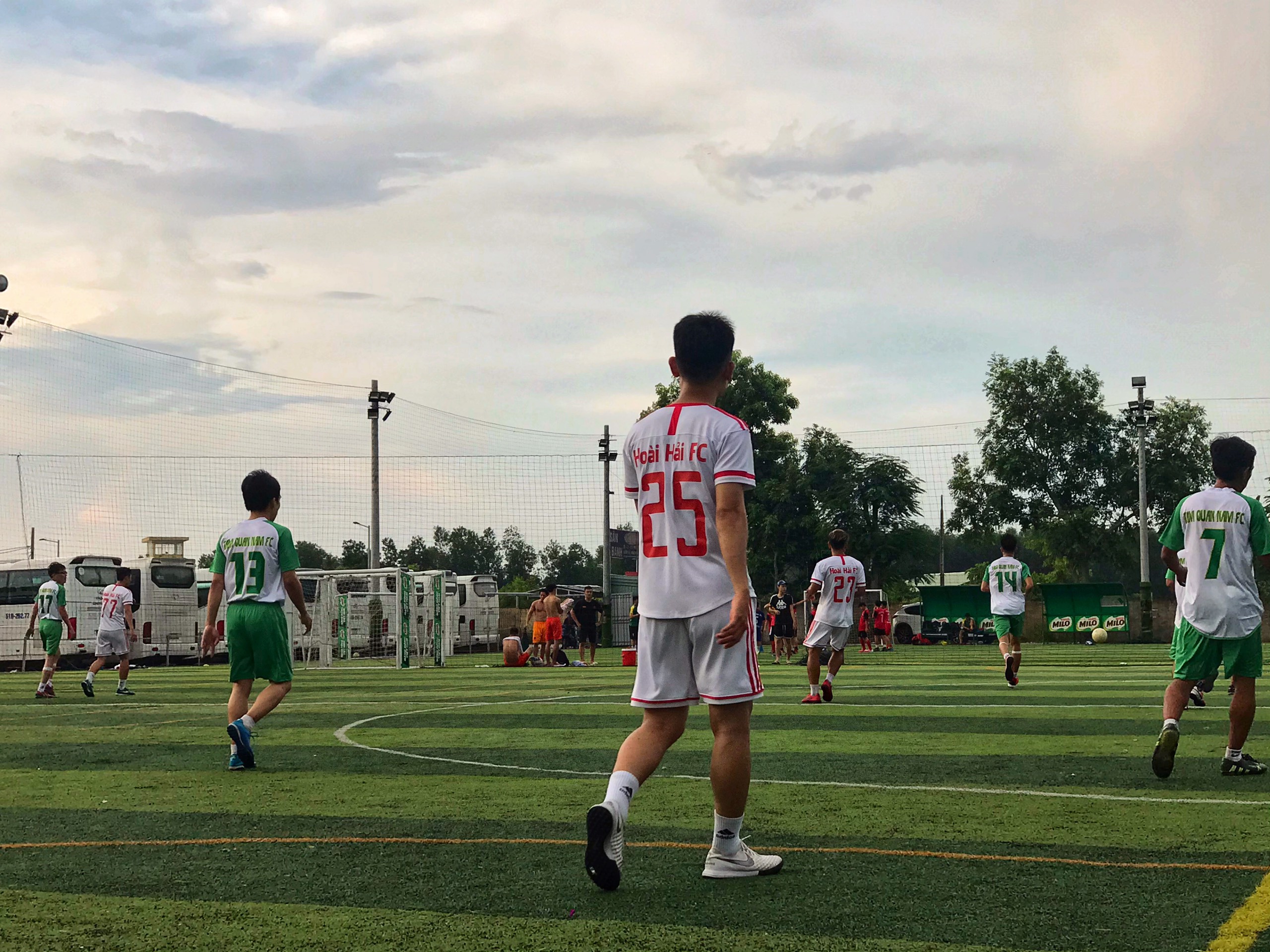|
Arnold Cruz
Arnold Javier Cruz Argueta (born 22 December 1970 in El Progreso) is a retired Honduran football defender. He currently is manager of second division side UPNFM. Club career Nicknamed ''Chele'', Cruz started his professional career at Olimpia before moving abroad to join compatriot César Obando at Mexican outfit UA Tamaulipas. He then played for fellow Mexicans Toluca and Morelia and joined Major League Soccer in 1997, where he would turn out for D.C. United and San Jose Clash. The much-travelled defender enjoyed a season in Argentinian football with Chacarita Juniors in between two more spells with Olimpia and played for Costa Rican side Cartaginés and the Salvadorans of Águila. He finally returned to Honduras and Olimpia in 2005 and finished his career at Platense in Liga Nacional de Honduras. International career Cruz made his debut for Honduras in a May 1991 UNCAF Nations Cup match against Panama and has earned a total of 50 caps, scoring 3 goals. He has repre ... [...More Info...] [...Related Items...] OR: [Wikipedia] [Google] [Baidu] |
El Progreso
El Progreso () is a city, with a population of 119,260 (2020 calculation), and a municipality located in the Honduran department of Yoro. Ramón Villeda Morales International Airport of San Pedro Sula is located west of the city. To the east of the city is the mountain range of Mico Quemado (Burned Monkey). El Progreso is located at a crossroads. Due to its strategic location, many travellers or tourists pass through el Progreso in one way or another. For that reason, el Progreso is considered a city of extreme importance in Honduras. Many travellers going to San Pedro Sula, Tela, La Ceiba, La Lima, Tegucigalpa etc. make a connection here, or use it as a rest area. The territorial extension of the municipality is . Of this territory, is defined as urban and as rural. The municipality is also divided into three geographic zones that comprise more than 100 barrios, which are home to more than 90,000 people. The climate of the city is humid. Demographics At the time of the ... [...More Info...] [...Related Items...] OR: [Wikipedia] [Google] [Baidu] |
FIFA World Cup Qualification
The FIFA World Cup qualification is a competitive match that a national association football team takes in order to qualify for one of the available berths at the final tournament of the (men's) FIFA World Cup. Qualifying tournaments are held within the six FIFA continental zones, each organized by their respective confederations: AFC (Asia), CAF (Africa), CONCACAF (North and Central America and the Caribbean), CONMEBOL (South America), OFC (Oceania), and UEFA (Europe). For each World Cup, FIFA decides the number of places in the finals allocated to each of the zones, based on the numbers and relative strengths of the confederations' teams. As a courtesy, the host receives an automatic berth selection, as has happened with the immediate past tournament winner during much of the competition's history. All other finalists are determined on a standalone qualifying round achievement without regard to previous achievements. History The berths for the inaugural 1930 tourname ... [...More Info...] [...Related Items...] OR: [Wikipedia] [Google] [Baidu] |
Estadio Francisco Morazán
A stadium ( : stadiums or stadia) is a place or venue for (mostly) outdoor sports, concerts, or other events and consists of a field or stage either partly or completely surrounded by a tiered structure designed to allow spectators to stand or sit and view the event. Pausanias noted that for about half a century the only event at the ancient Greek Olympic festival was the race that comprised one length of the stadion at Olympia, where the word "stadium" originated. Most of the stadiums with a capacity of at least 10,000 are used for association football. Other popular stadium sports include gridiron football, baseball, cricket, the various codes of rugby, field lacrosse, bandy, and bullfighting. Many large sports venues are also used for concerts. Etymology "Stadium" is the Latin form of the Greek word " stadion" (''στάδιον''), a measure of length equalling the length of 600 human feet. As feet are of variable length the exact length of a stadion depends on the ... [...More Info...] [...Related Items...] OR: [Wikipedia] [Google] [Baidu] |
Friendly Match
An exhibition game (also known as a friendly, a scrimmage, a demonstration, a preseason game, a warmup match, or a preparation match, depending at least in part on the sport) is a sporting event whose prize money and impact on the player's or the team's rankings is either zero or otherwise greatly reduced. In team sports, matches of this type are often used to help coaches and managers select and condition players for the competitive matches of a league season or tournament. If the players usually play in different teams in other leagues, exhibition games offer an opportunity for the players to learn to work with each other. The games can be held between separate teams or between parts of the same team. An exhibition game may also be used to settle a challenge, to provide professional entertainment, to promote the sport, to commemorate an anniversary or a famous player, or to raise money for charities. Several sports leagues hold all-star games to showcase their best players a ... [...More Info...] [...Related Items...] OR: [Wikipedia] [Google] [Baidu] |
Honduras
Honduras, officially the Republic of Honduras, is a country in Central America. The republic of Honduras is bordered to the west by Guatemala, to the southwest by El Salvador, to the southeast by Nicaragua, to the south by the Pacific Ocean at the Gulf of Fonseca, and to the north by the Gulf of Honduras, a large inlet of the Caribbean Sea. Its capital and largest city is Tegucigalpa. Honduras was home to several important Mesoamerican cultures, most notably the Maya, before the Spanish Colonization in the sixteenth century. The Spanish introduced Catholicism and the now predominant Spanish language, along with numerous customs that have blended with the indigenous culture. Honduras became independent in 1821 and has since been a republic, although it has consistently endured much social strife and political instability, and remains one of the poorest countries in the Western Hemisphere. In 1960, the northern part of what was the Mosquito Coast was transferred from Nicara ... [...More Info...] [...Related Items...] OR: [Wikipedia] [Google] [Baidu] |
Tegucigalpa
Tegucigalpa (, , ), formally Tegucigalpa, Municipality of the Central District ( es, Tegucigalpa, Municipio del Distrito Central or ''Tegucigalpa, M.D.C.''), and colloquially referred to as ''Tegus'' or ''Teguz'', is the capital and largest city of Honduras along with its sister city, Comayagüela. Claimed on 29 September 1578 by the Spaniards, Tegucigalpa became the country's capital on October 30, 1880, under President Marco Aurelio Soto, when he moved the capital from Comayagua. The Constitution of Honduras, enacted in 1982, names the sister cities of Tegucigalpa and Comayagüela as a Central District to serve as the permanent national capital, under articles 8 and 295. After the dissolution of the Federal Republic of Central America in 1841, Honduras became an individual sovereign nation with Comayagua as its capital. The capital was moved to Tegucigalpa in 1880. On January 30, 1937, Article 179 of the 1936 Honduran Constitution was changed under Decree 53 to establish Te ... [...More Info...] [...Related Items...] OR: [Wikipedia] [Google] [Baidu] |
Estadio Tiburcio Carías Andino
A stadium ( : stadiums or stadia) is a place or venue for (mostly) outdoor sports, concerts, or other events and consists of a field or stage either partly or completely surrounded by a tiered structure designed to allow spectators to stand or sit and view the event. Pausanias noted that for about half a century the only event at the ancient Greek Olympic festival was the race that comprised one length of the stadion at Olympia, where the word "stadium" originated. Most of the stadiums with a capacity of at least 10,000 are used for association football. Other popular stadium sports include gridiron football, baseball, cricket, the various codes of rugby, field lacrosse, bandy, and bullfighting. Many large sports venues are also used for concerts. Etymology "Stadium" is the Latin form of the Greek word " stadion" (''στάδιον''), a measure of length equalling the length of 600 human feet. As feet are of variable length the exact length of a stadion depends on the exac ... [...More Info...] [...Related Items...] OR: [Wikipedia] [Google] [Baidu] |
Venezuela National Football Team
The Venezuela national football team ( es, Selección de fútbol de Venezuela) represents Venezuela in men's international football and is controlled by the Venezuelan Football Federation (FVF), the governing body for football in Venezuela. They are nicknamed ''La Vinotinto'' ("Red wine") because of the traditional burgundy color of their shirts. When playing at home in official games, they usually rotate between three stadiums: The Polideportivo Cachamay in Puerto Ordaz, the Estadio José Antonio Anzoátegui in Puerto La Cruz and the Estadio Pueblo Nuevo in San Cristóbal. In friendly matches, they tend to rotate between the rest of the stadiums in the country. Unlike other South American nations, and akin to some Caribbean nations, baseball is extremely popular in Venezuela, which diverts athletic talent away from football, contributing to its historic lack of success in CONMEBOL competitions. As of 2022, they are the only CONMEBOL side to have never qualified for the FIFA ... [...More Info...] [...Related Items...] OR: [Wikipedia] [Google] [Baidu] |
Friendly Match
An exhibition game (also known as a friendly, a scrimmage, a demonstration, a preseason game, a warmup match, or a preparation match, depending at least in part on the sport) is a sporting event whose prize money and impact on the player's or the team's rankings is either zero or otherwise greatly reduced. In team sports, matches of this type are often used to help coaches and managers select and condition players for the competitive matches of a league season or tournament. If the players usually play in different teams in other leagues, exhibition games offer an opportunity for the players to learn to work with each other. The games can be held between separate teams or between parts of the same team. An exhibition game may also be used to settle a challenge, to provide professional entertainment, to promote the sport, to commemorate an anniversary or a famous player, or to raise money for charities. Several sports leagues hold all-star games to showcase their best players a ... [...More Info...] [...Related Items...] OR: [Wikipedia] [Google] [Baidu] |
1998 CONCACAF Gold Cup
The 1998 CONCACAF Gold Cup was the fourth edition of the Gold Cup, the soccer championship of North America, Central America and the Caribbean (CONCACAF). The tournament was once again held in the United States, in Los Angeles, Miami, and Oakland. The format of the tournament changed from 1996: it was expanded to ten teams, with four in Group A and three each in Groups B and C. The top team in each group, plus the second place in Group A would advance to the semifinals. Brazil was invited again, and brought their senior team this time. Jamaica, getting ready for the 1998 World Cup, pulled the stunner of the first round. They did not originally qualify for the tournament, but Canada withdrew, granting them a spot. Jamaica then topped Group A over Brazil (they tied the South Americans 0–0). In the semi-finals, the United States beat Brazil, as Preki scored the lone goal and Kasey Keller preserved the clean sheet. The United States could not repeat that performance in fron ... [...More Info...] [...Related Items...] OR: [Wikipedia] [Google] [Baidu] |
1996 CONCACAF Gold Cup
The 1996 CONCACAF Gold Cup was the third edition of the Gold Cup, the soccer championship of North America, Central America and the Caribbean (CONCACAF). The tournament returned to the United States and California; the games were hosted by Los Angeles, San Diego, and Anaheim. The format of the tournament changed from 1993: it was expanded to nine teams, separated into three groups of three and played in January as opposed to the 1993 edition which was played in July. The top team in each group, plus the best second-place finisher would advance to the semifinals. For the first time, a non-CONCACAF team was invited: Brazil, who sent their under-23 side. Mexico won their second straight Gold Cup, beating the Brazilians 2–0 in the final. Qualified teams Venues Squads The 9 national teams involved in the tournament were required to register a squad of 20 players; only players in these squads were eligible to take part in the tournament. Group stage Group A ---- ---- ... [...More Info...] [...Related Items...] OR: [Wikipedia] [Google] [Baidu] |
1991 CONCACAF Gold Cup
The 1991 CONCACAF Gold Cup was the first edition of the Gold Cup, the soccer championship of North America, Central America and the Caribbean (CONCACAF), and the eleventh overall CONCACAF tournament. The last time the CONCACAF Championship was held was 1971, from that point on the first-place finishers of World Cup qualifying were considered continental champions. The tournament was hosted by the United States and played in the Greater Los Angeles area of California at two venues: the Los Angeles Memorial Coliseum and the Rose Bowl. The eight teams were broken up into two groups of four; the top two teams of each group would advance to the semifinals. The Gold Cup was won by the United States, who eliminated Mexico in the semi-finals match, and went on to beat Honduras on penalties after tying them in the final 0–0. Qualified teams Venues Squads The 8 national teams involved in the tournament were required to register a squad of 18 players; only players in these squads w ... [...More Info...] [...Related Items...] OR: [Wikipedia] [Google] [Baidu] |








